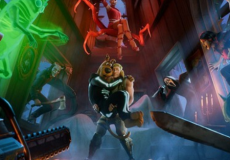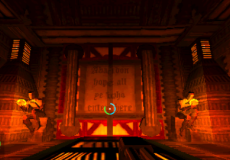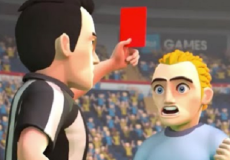

Troleu
Advertisement
Troleu is a management and simulation game in which the player takes the role of a trolleybus conductor responsible for maintaining order and ensuring compliance with travel regulations. The experience takes place inside a moving vehicle that serves as both workplace and challenge environment. Each route introduces a different mix of passengers, rules, and unexpected events. The player’s actions determine how smoothly the journey proceeds — whether through calm cooperation or repeated conflict. The gameplay loop is based on observation, decision-making, and quick responses to behavioral changes among passengers.
Advertisement
Similiar games
Troleu is a management and simulation game in which the player takes the role of a trolleybus conductor responsible for maintaining order and ensuring compliance with travel regulations. The experience takes place inside a moving vehicle that serves as both workplace and challenge environment. Each route introduces a different mix of passengers, rules, and unexpected events. The player’s actions determine how smoothly the journey proceeds — whether through calm cooperation or repeated conflict. The gameplay loop is based on observation, decision-making, and quick responses to behavioral changes among passengers.
Core Gameplay and Responsibilities
The routine inside Troleu involves checking tickets, managing noise levels, and enforcing the rules of public transportation. Passengers behave according to varied patterns: some follow procedures, while others attempt to cheat, argue, or cause disruptions. The player must choose how to react — whether to warn, fine, or remove them. Over time, regulations shift, adding new challenges to adapt to. The conductor is a rule enforcer and the central figure keeping the route functional. Each decision affects how other passengers respond, shaping the overall stability of the trolleybus.
Key systems operating throughout the game include:
· Passenger AI with randomized behavior patterns
· Ticket validation and transaction management
· Event triggers tied to passenger conduct
· Evolving rule sets that redefine acceptable behavior
· Dynamic feedback from the environment and crowd reactions
These systems interact continuously, meaning that every session produces unique combinations of events. The player must learn to anticipate and react rather than rely on memorization.
Strategy and Decision Flow
Troleu encourages balance between strict enforcement and practical tolerance. Excessive control can slow progress and frustrate passengers, while negligence leads to escalating chaos. Each round tests the ability to maintain authority while keeping efficiency. The player must monitor the state of the cabin, identify potential troublemakers, and allocate time wisely. The presence of inspectors or sudden events introduces pressure, forcing the player to choose between speed and accuracy. Gradual mastery comes from recognizing recurring patterns in both passengers and regulation updates.
Development and Replay Potential
The design of Troleu emphasizes procedural unpredictability. Rules, events, and personalities shift between playthroughs, ensuring that outcomes differ each time. The structure avoids linear storytelling and instead builds a system of escalating complexity. The replay value lies in understanding probability and developing situational awareness rather than following a preset route. Future updates add features such as expanded rule lists, varied passenger models, and new inspection mechanics, broadening the experience while keeping its core loop intact.
Discuss Troleu




















